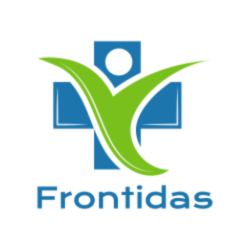Helen Keller once stated, “The only thing worse than being blind is having sight but no vision.” This thought is particularly poignant when exploring senior housing contracts. To ensure financial clarity in assisted living, one must grasp the complex terms of these agreements. Hidden costs can unexpectedly emerge, jeopardizing your budget. By identifying these costs early, you and your loved ones can navigate senior living expenses more skillfully. Identifying hidden costs is essential for ensuring a secure future in senior housing, as it helps protect residents’ rights and well-being. This guide aims to illuminate these hidden fees, offering security in your housing choices.
Key Takeaways
- Understand that hidden costs can significantly affect your budget.
- Be aware of community fees that might not be upfront.
- Scrutinize maintenance and repair costs included in the contract.
- Ask about extra charges for activities or additional services.
- Look for ambiguous language that may indicate hidden fees.
- Review all contract details to avoid unexpected expenses that may arise later.
- Always clarify important terms before signing.
Understanding Senior Housing Contracts
Understanding senior housing contracts is crucial for making informed choices about your living arrangements in the future. It is especially important to thoroughly review the assisted living contract to understand the terms, costs, and services included before making any decisions. Many communities offer a 30-day review period for contracts, allowing families sufficient time to consider their options. These agreements detail the terms and services offered by retirement communities for older adults, and they have a significant impact on costs.
What are Senior Housing Contracts and Continuing Care Retirement Communities?
Senior housing contracts are legal documents detailing the services and accommodations provided to older adults by retirement communities. There are different types of contracts, each with its own benefits and financial terms. In particular, there are different CCRC contract types—such as Type A, Type B, and Type C—each offering unique features and cost structures to suit various financial and healthcare needs. Type A contracts, also called Lifecare agreements, involve an upfront entrance fee that secures lifetime access to comprehensive care services and typically do not face additional charges for higher levels of care in the future. Getting familiar with these can help you understand the charges that could arise from retirement home agreements.
Key Components of These Contracts
Important elements of senior housing contracts to consider include:
- Residency agreements that specify your rights and obligations
- Review the resident agreement for a comprehensive outline of services, fees, and resident rights.
- The duration of stay, which can differ between contracts
- Included utilities in the price structures of senior communities
- Information on housing options, like room dimensions and type
- A detailed list of fees, including monthly charges and extra costs
- Descriptions of services provided, such as assistance with activities of daily living (ADLs)
Common Terminology to Know
Learning common terms is essential. For example, entrance fees are initial payments some communities require. These fees vary based on the contract type, such as rental or life care agreements. Knowing these terms aids in effectively navigating future housing decisions.
Assisted living facilities are communities that provide support for seniors who need help with daily activities, such as bathing or dressing, but do not require intensive medical care.

Common Hidden Costs to Watch For
In the realm of senior housing, understanding hidden costs is crucial for budgeting accurately. These extra fees and unexpected expenses can catch even careful planners off guard. Keep an eye out for various charges that may not be initially disclosed. Grasping these elements can aid in better financial preparation.
Community and Monthly Fees You Might Overlook
Community fees play a substantial role in the overall cost of senior housing, often missed by many. Community fees may or may not include core services such as daily living support, transportation, or recreational activities.
These fees might cover access to amenities like pools, fitness centers, or shared spaces. They might also include security and transportation services, elevating your monthly outlay. It’s important to scrutinize your contract thoroughly to grasp what’s included and the additional charges for amenities.
Maintenance and Repair Costs
Hidden costs in senior housing contracts sometimes stem from maintenance and repair charges. Maintenance and repair charges are a significant component of overall living costs in senior housing. Not all contracts cover every repair, which could leave you handling sudden problems.
It’s about knowing what the facility takes on and what’s your responsibility, from plumbing issues to regular maintenance. These unforeseen repairs can swiftly escalate your expenses, making it essential to plan for these costs.
Extra Charges for Activities or Services
Various activities and services offered by senior housing facilities often attract extra fees. Wellness programs are a common example of services that may incur extra charges in senior housing facilities. From off-site event transport to fitness classes and social gatherings, these additional costs need close monitoring.
These extra charges can considerably stretch your monthly budget. It’s crucial to check these potential add-ons to ensure they meet your expectations.

Reading Between the Lines: Contract Language
Grasping the language in senior housing contracts can empower you to manage the complexity of agreements. It is important to clarify the cost structure in these contracts to avoid hidden fees and understand exactly what is included in the base price and what may incur additional charges. Often, contracts have unclear terms that can hide important details about costs and services. Hidden fees in senior living contracts might include expenses for optional services or higher levels of care. Being alert to these details is vital to evade unexpected costs in a retirement residence’s fine print.
How to Spot Ambiguous Terms
Reviewing a contract, search for terms that can be interpreted in many ways. For example, “basic services” might suggest that certain essential services are included. Be aware that some services may be billed separately, resulting in additional charges beyond the base fee. However, there may be undisclosed charges for these once you move in. Identifying such ambiguities is crucial to understand what your contract truly covers.
Red Flags in Contract Wording
Watch for clarity issues concerning pricing structures. Contracts should be clear about the financial aspects of assisted living choices. Clear grievance procedures should also be included in the contract, so residents have a transparent way to resolve disputes if they arise. Vague wording or partial cost explanations should raise concerns. Ambiguous language may result in unanticipated fees, emphasizing the need for thorough clarifications to avert future disagreements.
Requesting Clarifications
Always seek clarifications on ambiguous points. Seeking clarifications on contract terms is essential for informed decision making, ensuring you understand all legal and financial aspects before committing. Contacting management can help ensure you fully understand your contract’s obligations and rights. Knowing the subtleties of your agreement strengthens your position and supports financial clarity for assisted living options. For additional guidance on navigating these complex contracts, visit this useful resource

Questions to Ask Before Signing
Before you commit to a senior living option, it’s essential to delve into all costs and services thoroughly. Be sure to ask questions specific to the assisted living community you are considering to ensure all your concerns are addressed. Understanding senior living expenses and specific contractual fees retirement homes charge can significantly guide your decision-making.
Important Inquiries About Fees
When talking about fees, aim to get a detailed breakdown of monthly costs. Ask what’s covered in the base rate and whether there are extra charges for certain services. Gaining clarity on these aspects of financial transparency assisted living helps prevent surprises related to costs later on.
Services Included in the Contract
Make sure to understand which services the monthly fee covers. It is important to clarify whether personal care services, such as assistance with bathing, dressing, and medication management, are included in the monthly fee. This should include both hospitality services, like dining and housekeeping, and care services, such as help with daily activities. Knowing this helps you see if the community meets your needs. For detailed information, reference resident agreements
Policies on Rate Increases
Ask about how the community handles rate increases annually. Be sure to ask about the notice period required for any rate increases or policy changes, so you know how much advance warning you will receive. Many places do raise rates, and knowing this can help with planning your finances in the long run. Always ask for this information in written form to keep for your records.
Comparing Different Facilities
When exploring senior housing options, focus on the total costs for an informed choice. Be sure to compare costs and services across different senior living communities to find the best fit for your needs. Look beyond monthly fees, considering all possible expenses. This approach aids in understanding what each facility offers, impacting comfort and finances.
Evaluating Total Costs Across Options
Facilities may vary in how they present costs. Residents pay for additional or higher-level care depending on the contract type, which can affect total costs. To gauge the total costs accurately, include services like food and housekeeping in your assessment. Ask about hidden fees to ensure financial transparency. Financial transparency assisted living is crucial, providing a clear picture of expenses.
The Importance of Visiting Facilities
Visiting facilities offers a firsthand look at their environment and amenities. Touring in advance can help ensure a smooth transition into senior living by allowing you to address any concerns before moving. Such observations reveal details beyond numbers. A facility might seem affordable initially but may have high unexpected expenses aging in place. Visiting allows you to see if a facility meets your lifestyle needs.
Assessing Services and Amenities Offered
The variety of services and amenities among facilities can significantly differ. Some facilities also offer specialized care, such as memory support or rehabilitation, which can influence your decision. Some may offer extensive health services or recreational programs, influencing your experience. Comparing what each provides helps in making well-informed decisions. Reference resources like this article to use your financial situation effectively when transitioning.
Understanding Your Rights
Seniors possess distinct rights related to their housing and care, essential for navigating potential challenges. These laws are designed to protect residents from unfair practices and ensure their well-being. Both federal and state laws play a critical role in shaping the operations of senior living. They ensure transparency in service offerings and pricing structures. Facilities are legally mandated to protect residents from abuse, neglect, discrimination, and exploitation. Residents are entitled to fundamental rights such as privacy, dignity, and personal autonomy.
Federal and State Regulations
Specific regulations are in place to protect your rights. Federal and state regulations often specify contract termination policies, which are important to understand before signing. These laws demand clear disclosure about services and their associated fees. This clarity aids in making well-informed decisions. Understanding these regulations is key to setting accurate expectations for your senior housing experience.
Resources for Legal Assistance
Should issues arise concerning your rights as an elder, there are resources at your disposal. It is highly recommended to consult an elder care attorney or elder law attorney for assistance with contract review and legal issues related to senior living agreements. These professionals can help ensure clarity and fairness in the terms of the contract. Organizations focused on senior support offer invaluable advice and guidance. They can help address disputes or clarify contractual terms, easing your concerns throughout the process.
Knowing When to Seek Help
Being informed is crucial. Seeking timely assistance can help maintain your financial security in senior housing by preventing unexpected costs and ensuring your agreements are honored. Knowing the appropriate time to seek assistance can avoid the worsening of small issues. If your rights seem jeopardized or agreements are unclear, seeking help is advised. Reaching out to elder rights groups or obtaining legal counsel promptly ensures the quality of care you deserve.
Moving Forward with Confidence
Securing senior housing requires decisive action, especially when negotiating your contract. Clearly, effective negotiation can clear up ambiguities and might lower expenses. It’s important to ask questions and express concerns; this can lead to more favorable terms that meet your specific needs.
Financial planning is essential to ensure a smooth and confident transition into senior housing, helping you understand costs, advantages, and long-term financial security.
Building a strong relationship with the facility’s management is critical. A good rapport with those in charge eases communication. It ensures you get necessary assistance promptly. Such a connection builds trust and supports a clear discussion on policy or financial changes, crucial for financial clarity in assisted living.
Keeping up to date with changes in the facility’s offerings or policies is key. This knowledge allows you to adjust your financial plans as needed. With these strategies, you can confidently move into a senior living community. This confidence is crucial for enhancing your life quality in your later years.
FAQ
What should I look for in a senior housing contract?
Examine the contract for hidden costs, including community fees and maintenance obligations. Be sure to check if medication management is included in the contract, as this is a key component of care in many assisted living facilities. Check for additional charges for activities or services. Understanding the key components and common terminology is crucial for making informed decisions.
Are there common hidden costs in senior housing that I should be aware of?
Indeed, unintended expenses can arise. Rehabilitation services may be an additional hidden cost in some senior housing contracts. These include costs for additional activities and maintenance duties not covered by the contract. Also, be wary of community fees for services like security or transportation that might not be evident at first glance.
How can I identify ambiguous terms in contracts?
Search for unclear language around “basic services” or “amenities included,” as they might imply extra costs. Fee-for-service arrangements, where residents pay market rates for healthcare services only when used, can lead to hidden costs if not clearly defined in the contract. If something is unclear, requesting clarifications is crucial to avoid misunderstanding.
What questions should I ask before signing a senior housing contract?
Inquire about pricing structures, included services in the monthly fee, and rate increase policies. Ask if skilled nursing services are included in the contract, as this higher level of care is often an important part of the continuum offered by many communities. This information provides a clear view of your financial obligations.
Why is it important to compare different facilities?
Comparison sheds light on true costs and services. It is essential to compare facilities based on their ability to provide high quality care, ensuring residents receive comprehensive and dedicated healthcare services. By visiting several communities, you grasp the value of your investment and the additional amenities offered. This impacts your lifestyle and budget significantly.
What rights do seniors have regarding housing and care?
Seniors have rights concerning housing terms, financial openness, and care quality. Federal and state laws protect these rights. There are available resources for assistance if problems occur.
How can I negotiate my senior housing contract?
For negotiations, aim to clarify uncertain terms and discuss fee adjustments. A good relationship with facility management facilitates easier communication. This helps tackle future issues smoothly.
What steps can I take to stay informed about changes in my contract or facility?
Staying proactive is essential. Monitoring the facility’s financial stability is also crucial to ensure long-term security and peace of mind. Keep regular contact with management regarding any policy or service changes. This approach allows timely financial adjustments and eases the transition into senior living.
